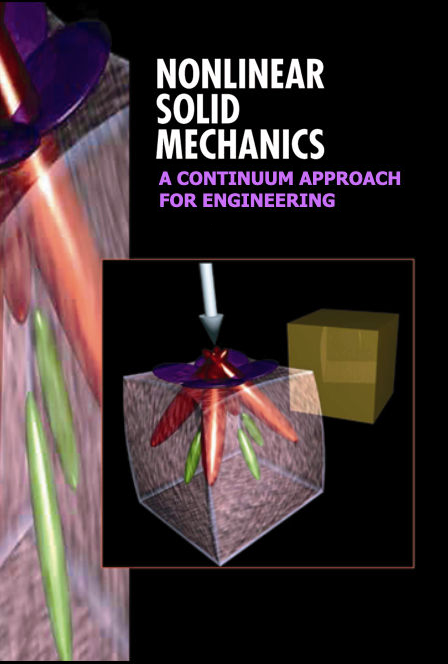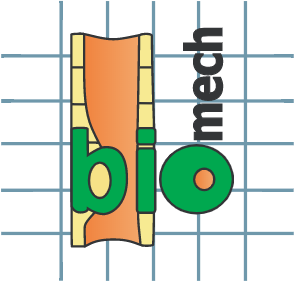Frontpage Header


 Graz University of Technology, Austria
Graz University of Technology, Austria Institute of Biomechanics
Institute of BiomechanicsInternational Symposium in honor of
Professor Gerhard A. Holzapfel’s 60th birthday
Biomechanics:
Challenges of the Next Decade
Graz, June 30 – July 1, 2022
Format/Program
Symposium in honor of the 60th birthday of Professor Gerhard A. Holzapfel
This event will be held at Graz University of Technology, Austria, from June 30 – July 1, 2022.
No registration fee is required for those invited to give oral presentations. For all others who wish to participate in the symposium there is a registration fee of € 250.00, which covers attendance at all lectures as well as light refreshments in the morning and afternoon breaks. Sessions will also be available, during the morning and afternoon breaks, for participants who would like to present their research as posters. It is then required to send the title of the poster, and the related authors and affiliations to bettina.strametz@tugraz.at as soon as possible but not later than May 31, 2022.
The online registration will be open until May 31, 2022. Details about registration and payment are available here.
Objectives of the symposium
Biomechanics is a challenging subject that studies living systems by means of the development, extension, and application of mechanics to better understand biological, engineering and medical phenomena. Nonlinear continuum mechanics, multiscale modeling, advanced 3D imaging techniques together with unprecedented predictive computational power allow us to solve cutting-edge biomechanics problems with rather complex patient-specific anatomies.
Interdisciplinary approaches that address phenomena at the nano-, micro-, or macro-levels are often required to solve such problems. Mechanics, natural sciences such as biophysics, biochemistry, and mathematics, as well as biomedical-, tissue-, health care-, computer- and biomolecular engineering sciences need to be combined with medicine to tackle real-world problems.
This symposium aims to gather the expertise of established and emerging scientists with backgrounds in the relevant areas of solid (bio)mechanics. It will highlight the state-of-the-art research in mathematical modeling, computational simulation, and experimental methods for testing of a range of biological tissues. In addition, it will highlight some major challenges of the next decade and how we can be better prepared for them.
Venue
The Symposium is hosted at
Graz University of Technology
Stremayrgasse 16
Ground floor, Room BMTEG138

Arrival
Public Transport:
Tram number 6
Tramstop: "Neue Technik"
(University of Technology New Campus)
For more information about
public transport and tickets see: www.verbundlinie.at
Arrival to Graz
By plane:
Public busses bring you from Graz Airport to the city centre of Graz (Jakominiplatz). The bus stop is outside the passenger terminal, right next to the arrival area. The price for an one-hour-ticket is € 2.50 and is available at the bus driver.
A taxi from the airport to the city centre costs about € 20.00-25.00 and takes approx. 25 minutes.
Airport: www.flughafen-graz.at
By Train:
From the main railway station take a taxi or a tram to the Summer School venue, which takes about 15 minutes.
Railway: www.oebb.at
Speakers
- Gerard A. Ateshian – Columbia University, USA
- Ferdinando Auricchio – University of Pavia, Italy
- Stéphane Avril – École des Mines de Saint-Étienne, France
- Daniel Balzani – Ruhr-University Bochum, Germany
- Davide Bigoni – University of Trento, Italy
- Markus Böl – Braunschweig University of Technology, Germany
- Silvia Budday – FAU Erlangen-Nürnberg, Germany
- Christian Cyron – Hamburg University of Technology, Germany
- Hüsnü Dal – Middle East Technical University, Turkey
- Gal deBotton – Ben-Gurion University of the Negev, Israel
- Wolfgang Ehlers – University of Stuttgart, Germany
- Nele Famaey – KU Leuven, Belgium
- Eduardo A. Fancello – Federal University of Santa Catarina, Brazil
- Alain Goriely – University of Oxford, UK
- Boyce E. Griffith – University of North Carolina at Chapel Hill, USA
- Jeffrey W. Holmes – University of Alabama at Birmingham, USA
- Jay D. Humphrey – Yale University, USA
- Peter Hunter – The University of Auckland, New Zealand
- Alexey Kamenskiy – University of Nebraska Omaha, USA
- Igor Karšaj – University of Zagreb, Croatia
- Ellen Kuhl – Stanford University, USA
- Chung-Hao Lee – The University of Oklahoma, USA
- Christian Linder – Stanford University, USA
- Edoardo Mazza – ETH Zürich, Switzerland
- Patrick McGarry – NUI Galway, Ireland
- Ralph Müller – ETH Zürich, Switzerland
- David Nordsletten – University of Michigan Ann Arbor, USA
- Ray W. Ogden – University of Glasgow, UK
- Oliver Röhrle – University of Stuttgart, Germany
- Bjørn Helge Skallerud – NTNU, Norway
- Jonas Stålhand – Linköping University, Sweden
- David Steigmann – UC Berkeley, USA
- Paul Steinmann – FAU Erlangen-Nürnberg, Germany
- Joakim Sundnes – University of Oslo, Norway
- Jianhua Tong – Tongji University, PR China
- Konstantin Volokh – Technion – Israel Institute of Technology, Israel
- Paul Watton – The University of Sheffield, UK
- Xiao Yun Xu – Imperial College London, UK
Committee
- Scientific Committee
- Alain Goriely – University of Oxford, UK
- Peter Hunter – The University of Auckland, New Zealand
- Ellen Kuhl – Stanford University, USA
- Ralph Müller – ETH Zürich, Switzerland
- Ray W. Ogden – University of Glasgow, UK
- Gerhard Sommer – Graz University of Technology, Austria
- Local Organizing Committee
- Daniel Haspinger
- Kewei Li
- Selda Sherifova
- Gerhard Sommer
- Bettina Strametz
- Stephan Teichtmeister
Registration
No registration fee is required for those invited to provide an oral presentation.
For all others who wish to participate and present a poster at the symposium the registration fee is € 250.00. The fee covers attendance at all lectures as well as light refreshments in the morning and afternoon breaks.
Payment is required by May 31, 2022.
Payment details:
Technische Universität Graz
Account number: 51656 101 815
Bank number: 12000
Bank name: UniCredit Bank Austria
IBAN: AT091200051656101815
BIC: BKAUATWW
Accommodation
Suggested accommodation near the Symposium venue:
Hotel Gollner
Schlögelgasse 14
8010 Graz
Website
Contact: office@hotelgollner.com
Distance to the Symposium: 7 minutes walk
b(l)ackhome
Schörgelgasse 15
8010 Graz
Website
Contact: welcome@blackhome.at
Distance to the Symposium: 4 minutes walk
Parkhotel
Leonhardstrasse 8
8010 Graz
Website
Contact: office@parkhotel-graz.at
Distance to the Symposium: 13 minutes walk
Star Inn Hotel Premium
Waltendorfer Gürtel 8-10
8010 Graz
Website
Contact: graz@starinnhotels.com
Distance to the Symposium: 9 minutes walk
Haus Mobene
Kastellfeldgasse 14
8010 Graz
Website
Contact: mobene@hosan.at
Distance to the Symposium: 6 minutes walk
Contact
Gerhard Sommer
E-mail: sommer@tugraz.at
Phone: +43(0)316 873 35505
Bettina Strametz
E-mail: bettina.strametz@tugraz.at
Phone: +43 (0)316 873 35501
Graz University of Technology
Institute of Biomechanics
Stremayrgasse 16/2
8010 Graz, Austria
